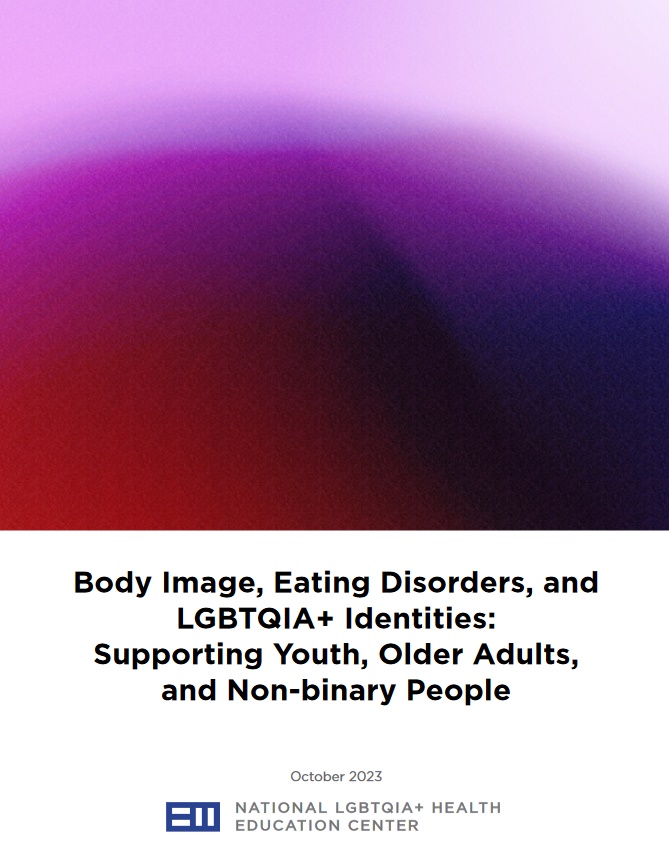Eating disorders have steadily increased in the U.S. population, especially since the onset of the COVID-19 pandemic. Although once considered a problem for white wealthy girls and women, eating disorders and related body-image disturbances are now known to reach across all races/ethnicities, socio-economic levels, and gender identities. Research suggests that lesbian, gay, bisexual, and transgender people have a high prevalence of eating disorders and negative body image that may require culturally responsive approaches to screening and counseling. This clinical publication provides information and strategies for improving the capacity of health centers to screen, assess, and address issues related to eating disorders and body image among lesbian, gay, bisexual, transgender, queer, intersex, asexual, and all sexually and gender diverse (LGBTQIA+) people, with special considerations for LGBTQIA+ youth, older adults, and non-binary people.

Body Image, Eating Disorders, and LGBTQIA+ Identities: Supporting Youth, Older Adults, and Non-binary People
- Filed under
- Behavioral Health

